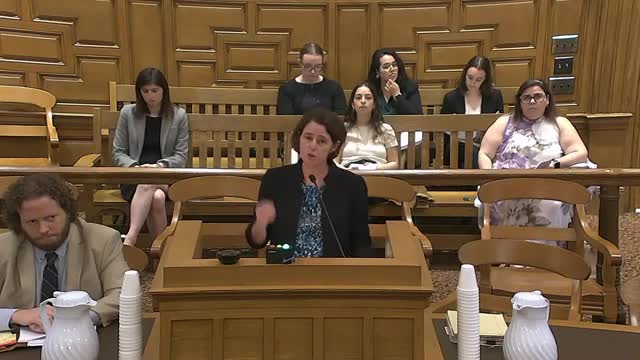Court hears explosive arguments in high-stakes shooting case
November 01, 2024 | Judicial - Appeals Court Oral Arguments, Judicial, Massachusetts
This article was created by AI summarizing key points discussed. AI makes mistakes, so for full details and context, please refer to the video of the full meeting. Please report any errors so we can fix them. Report an error »

In a recent court hearing, significant discussions arose regarding the credibility of witness testimonies and the implications of video evidence in a high-profile shooting case. The Commonwealth's argument centered on the importance of Tara Duarte's identification of the defendant as the sole occupant of the vehicle involved in the shooting. However, doubts were raised about the reliability of her identification, which the defense argued could lead to a substantial risk of miscarriage of justice.
The defense contended that the identifications made from surveillance footage were improperly facilitated, suggesting that without these questionable identifications, the case against the defendant would lack sufficient evidence. The prosecution, on the other hand, maintained that the evidence presented, including eyewitness accounts and video footage, strongly supported their case.
A critical point of contention was the prosecutor's reference to a witness's invocation of the Fifth Amendment right during the trial. The Commonwealth conceded that this was improper, yet argued it did not amount to prosecutorial misconduct. The defense asserted that the repeated mention of the witness's evasiveness unfairly influenced the jury's perception, potentially undermining the defendant's right to a fair trial.
The court also examined the nature of video testimony presented by law enforcement officers, with the defense questioning whether the officers' interpretations of the footage constituted opinion testimony. The prosecution defended the officers' testimonies as factual observations, arguing that they were necessary to contextualize the evidence for the jury.
As the hearing concluded, the judges expressed concerns about the implications of the prosecution's approach, particularly regarding the potential for bias in how evidence was presented. The outcome of this case remains uncertain, as the court deliberates on the arguments presented and their implications for the defendant's rights and the integrity of the judicial process.
The defense contended that the identifications made from surveillance footage were improperly facilitated, suggesting that without these questionable identifications, the case against the defendant would lack sufficient evidence. The prosecution, on the other hand, maintained that the evidence presented, including eyewitness accounts and video footage, strongly supported their case.
A critical point of contention was the prosecutor's reference to a witness's invocation of the Fifth Amendment right during the trial. The Commonwealth conceded that this was improper, yet argued it did not amount to prosecutorial misconduct. The defense asserted that the repeated mention of the witness's evasiveness unfairly influenced the jury's perception, potentially undermining the defendant's right to a fair trial.
The court also examined the nature of video testimony presented by law enforcement officers, with the defense questioning whether the officers' interpretations of the footage constituted opinion testimony. The prosecution defended the officers' testimonies as factual observations, arguing that they were necessary to contextualize the evidence for the jury.
As the hearing concluded, the judges expressed concerns about the implications of the prosecution's approach, particularly regarding the potential for bias in how evidence was presented. The outcome of this case remains uncertain, as the court deliberates on the arguments presented and their implications for the defendant's rights and the integrity of the judicial process.
View the Full Meeting & All Its Details
This article offers just a summary. Unlock complete video, transcripts, and insights as a Founder Member.
✓
Watch full, unedited meeting videos
✓
Search every word spoken in unlimited transcripts
✓
AI summaries & real-time alerts (all government levels)
✓
Permanent access to expanding government content
30-day money-back guarantee

